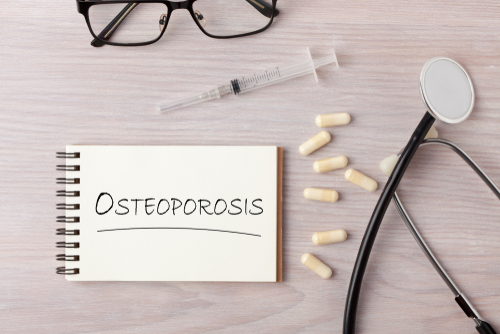
A systematic review published in Osteoporosis International evaluated whether osteoporosis patients at a high risk for fracture could benefit from a “drug holiday,” or taking an extended break from treatment with bisphosphonates (BiP) or denosumab.
“Trial evidence suggests the risk of new clinical fractures, and vertebral fracture increases when osteoporosis treatment with bisphosphonates or denosumab is stopped,” the study authors wrote.
Professor Elaine Dennison, MB BChir Cantab, MA, MSc, FRCP, PhD, lead study author of the MRC Lifecourse Epidemiology Unit, University of Southampton, UK, said in a press release that the goal of the study “was to review the available literature to assess what evidence exists to inform decision making on drug holidays and to identify any indicators that might help clinicians decide whether to continue or discontinue therapy in individual patients.”
Outcomes Differ Based on Treatment
The authors found that outcomes differed based on varying therapies. Patients who discontinued BiP had an increased new clinical fracture risk of between 20% and 40%, according to prospective and retrospective analyses; vertebral fracture risk was about twice as high. Stopping denosumab therapy was associated with rapid bone loss and a 5% incidence of multiple vertebral fractures. The literature did not point to an increased fracture risk associated with stopping treatment long-term, suggesting a low rate of adverse skeletal events.
“Studies have not identified risk factors for fracture after stopping treatment other than those that provide an indication for treatment (e.g. prior fracture and low [bone mineral density]),” the researchers observed.
Co-author professor Serge Ferrari, MD, chair of the International Osteoporosis Foundation (IOF) Committee of Scientific Advisors, said in a press release, “This review points to the need for a far more nuanced approach to drug holidays. Osteoporotic fractures can be life-threatening and have a devastating impact on quality of life. Doctors and patients must be aware that, particularly for individuals at high risk, the benefits of staying on treatment clearly outweighs the risk of rare side effects.” Dr. Ferrari also noted that BiP and denosumab are significantly different treatments and should be evaluated differently when considering discontinuation.
Co-author professor Cyrus Cooper, president of IOF, said that it is important to make informed decisions when considering drug holidays due to the devastating effects associated with fracture: “The burden of osteoporotic fractures is very high and costly, resulting in disability and loss of independence in millions of older women and men worldwide. The efficacy of proven treatments is well established with fracture reduction in the order of 50% possible.”







 © 2025 Mashup Media, LLC, a Formedics Property. All Rights Reserved.
© 2025 Mashup Media, LLC, a Formedics Property. All Rights Reserved.